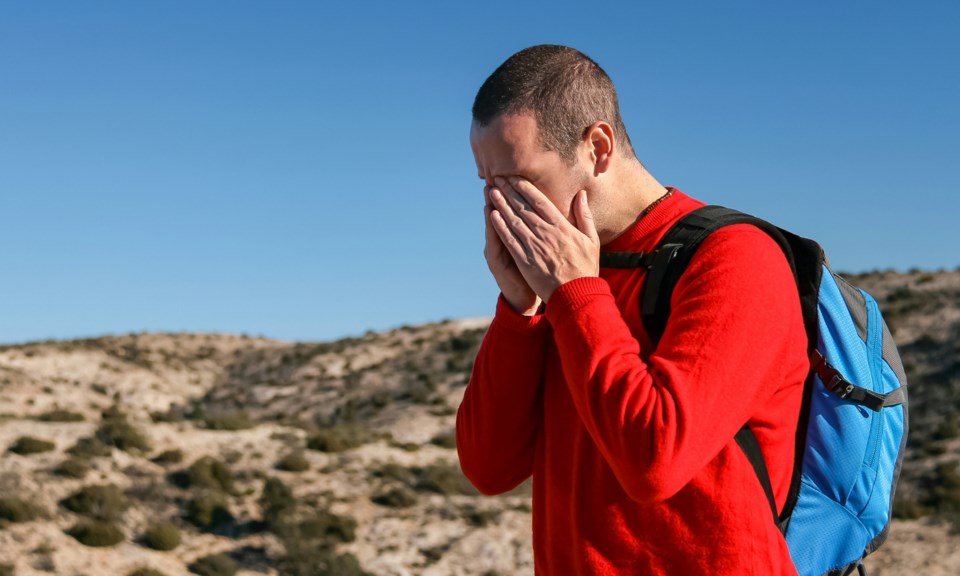Denver, the "Mile-High City," sits over 5,000 feet above sea level, and newcomers often struggle with altitude sickness. If you’re visiting or moving to Denver, it’s important to know how to avoid altitude sickness in Denver. The city’s thin air can cause discomfort, but with the right steps, you can adjust easily. In this article, we’ll share some tips to help you stay healthy and enjoy your time in Denver.
What is Altitude Sickness?

Altitude sickness, also known as acute mountain sickness (AMS), occurs when the body struggles to adjust to the lower oxygen levels found at high elevations. In cities like Denver, which sits over 5,000 feet above sea level, this condition can affect both visitors and new residents who are not used to being at higher altitudes. It can develop after quickly moving to a higher elevation without allowing enough time for the body to acclimate.
The condition happens because the air at higher altitudes contains less oxygen, making it harder for the body to get the necessary oxygen to function properly. This can lead to various symptoms, ranging from mild discomfort to more severe health issues, especially for those who don’t take the time to adjust gradually.
Common Symptoms of Altitude Sickness
Altitude sickness can affect people differently, but the symptoms are often similar. These can range from mild to more severe signs depending on the person's health and the elevation.

Headache
The most common symptom of altitude sickness is a headache, which can feel like a constant pressure on your head. This is often due to the reduced oxygen levels in the body, making it harder for your brain to get enough oxygen. Hydration can sometimes help alleviate this symptom, but rest is also essential.
Fatigue and Light-headedness
Fatigue is another typical symptom, as the body uses more energy to function at higher elevations. Along with exhaustion, light-headedness often accompanies the tiredness, making it difficult to stay steady on your feet. These symptoms can worsen with physical activity, so it’s important to rest when you feel this way.
Nausea and Vomiting
Some people may experience nausea or even vomiting when adjusting to the high altitude. This happens because the body is struggling to cope with the reduced oxygen levels, which can upset the digestive system. Staying hydrated and avoiding heavy meals can help minimize these symptoms.
Swelling
Swelling in the hands, feet, or face is another symptom of altitude sickness. This occurs when the body starts to retain fluids as it struggles to adapt to the altitude. Elevation and staying off your feet can help reduce swelling, but if it worsens, it’s important to descend to a lower altitude.
Rapid Heartbeat
At high altitudes, the heart works harder to pump oxygen throughout the body, leading to a faster heartbeat. This rapid pulse is a common sign of altitude sickness, especially when engaging in physical activities. Rest and controlled breathing can help manage this symptom.
Top 5 High Altitude Tips for Denver
Denver, known as the "Mile-High City," sits at an elevation of 5,280 feet above sea level, and adjusting to the thinner air can be challenging for newcomers and visitors. To help you make the most of your time in the city while avoiding altitude sickness, here are five tips to keep in mind.

1. Stay Hydrated
At higher altitudes, the air is much drier, which can lead to quicker dehydration. Be sure to drink plenty of water throughout the day, and aim to double your usual water intake to stay properly hydrated. Also, consider replenishing electrolytes by eating foods rich in potassium, like bananas and avocados, to maintain a healthy balance.
2. Avoid Strenuous Exercise on the First Day
Your body needs time to adjust to the higher elevation, so avoid intense physical activities, such as hiking or skiing, on your first day in Denver. Start with light walking or sightseeing to give your body a chance to acclimate without overexertion. Gradually increase your activity level as you start to feel more comfortable.
3. Get Plenty of Rest
Rest is essential when adjusting to a higher elevation. Take breaks when needed and allow your body the time it needs to recover from the physical strain of adapting to Denver's altitude. Prioritize sleep and avoid staying up too late to ensure your body stays well-rested and ready for the next day.
4. Limit Alcohol and Caffeine
Both alcohol and caffeine can contribute to dehydration, which is especially problematic at high altitudes. If you're planning to drink, keep it moderate, and try to limit caffeine consumption, especially on the day you arrive in Denver. This will help your body adjust more smoothly and avoid exacerbating any altitude sickness symptoms.
5. Give Your Body Time to Adjust
Finally, it’s important to give your body time to acclimate to the elevation. Spend the first day or two in Denver at a relaxed pace—explore lower elevations, enjoy the local sights, and avoid overexerting yourself. Gradually, your body will adapt to the thinner air, and you’ll be ready to take on more strenuous activities with ease.
Conclusion: Stay Safe and Enjoy Denver's Altitude

In conclusion, knowing how to avoid altitude sickness in Denver is essential for a smooth and enjoyable visit or move to the Mile-High City. By staying hydrated, taking it easy on physical activities, and giving your body time to adjust, you can minimize discomfort and make the most of your time in this vibrant city. Follow these tips, and you'll be able to experience all that Denver has to offer without the worry of altitude sickness.


